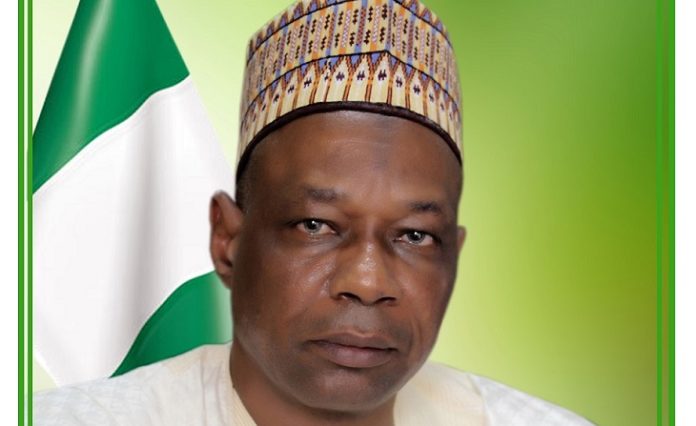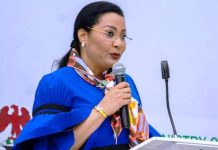In a renewed effort to reduce the effect of mercury on human health and the environment in line with the Minamata Convention to which Nigeria is a signatory, the Federal Ministry of Environment, Tuesday 18th July, 2017 inaugurated a National Steering Group (NSG) for the execution of the National Action Plan on Mercury use in the Nigerian Artisana and Small-scale Gold Mining (ASGM) sector.
Speaking at the occasion, the Permanent Secretary of the Ministry, Dr. Shehu Ahmed, who represented the Minister of State for Environment noted that human activities in recent times have largely increased the concentration of mercury in our environment adding that the magnitude of its expose to the environment has huge potentials of adversely impacting on human health as a result of its toxicity to the nervous systems.
According to him, it is in a bid to arrest this ugly trend worldwide that the Minamata Convention is a Multilateral Environmental Agreement (MEA) formulated in order to effectively address the adverse effects of mercury through practical actions to control emission and releases of mercury compound from human activities.
He disclosed that Nigeria first signed the Convention in October, 2013 and that the Federal Executive Council (FEC) on 12th April, 2017 approved the ratification of the Convention. With this new development, the Federal Ministry of Justice is currently preparing the instrument of ratification for the President’s assent.
He further noted that though Nigeria does not have a full-scale gold mining sector but artisanal and small-scale miners carry out majority of the gold mining activities in the country and as a result of this, preliminary assessment of mercury releases in Nigeria was carried out by the Ministry in 2012 using the UNEP Toolkits and indications shown that ASGM processing is more than insignificant.
Arising from this discovery, Nigeria reported to Secretariat and applied to the Global Environment Facility (GEF), for the funding of a project on development of a National Action Plan (NAP) for the ASGM sector. Adding that this approval was granted in February 2016 and implementation arrangement was finalized with UNIDO in June, 2017.
Elements of the NAP as contained in Annex C of the Convention includes, National objectives and reduction targets, Steps to eliminate worst practices and promote mercury-free methods, Steps to facilitate the formalization or regulation of the ASGM sector, Series of strategies such as public health strategy on the exposure of miners and their communities to mercury, Additional strategies to achieve its objectives and Schedule for implementation of the NAP.
The project implementation structure includes a National Steering Group (NSG) that would provide the guidance and technical support for the effective implementation of the activities.
In her goodwill address, the representative of UNIDO, Ms Rodica Ivan, UNIDO Headquarters, Vienna-Austria lauded Nigeria’s great efforts in setting up a National Steering Committee to pilot the implementation of the National Project “Development of the National Plan for Nigeria’s Artisanal and Small-Scale Gold Mining Sector’.
According to her, countries that have declared more than insignificant activity of Artisanal and Small-Scale Gold Mining (ASGM) in their country, under the Minamata Convention on Mercury are expected to develop a National Action Plan on Mercury for the sector.
Presently 128 countries are signatories to the Minamata Convention with about 70 countries having ratified as future parties.
She disclosed that the Convention is expected to come into force on the 16th of August 2017 which is 90 days after the ratification of the 50th future Party and the first Conference of Parties (COP) slated for Geneva between 24 and 29 September, 2017.
Rodica Ivan maintained that the Convention focuses largely on the ASGM sector because of the high level of anthropogenic emissions and releases of mercury to the Environment which she says accounts for 37% emissions.
She stated that UNIDO will continue to support in providing a national oversight and guidance for the project execution.
Membership of the Steering Committee is drawn from line Ministries of Environment, Health, Mines and Steels Development, the United Nations International Development Organization (UNIDO), the Academia/Research Institutions, Mining Association of Nigeria and the Non-Governmental Organizations (NGOs).
The Committee is collaboratively designed with the objective to build national capacity for the management of mercury in ASGM through a National Action Plan.
Ovuakporie Efe
for: Director (Press)






